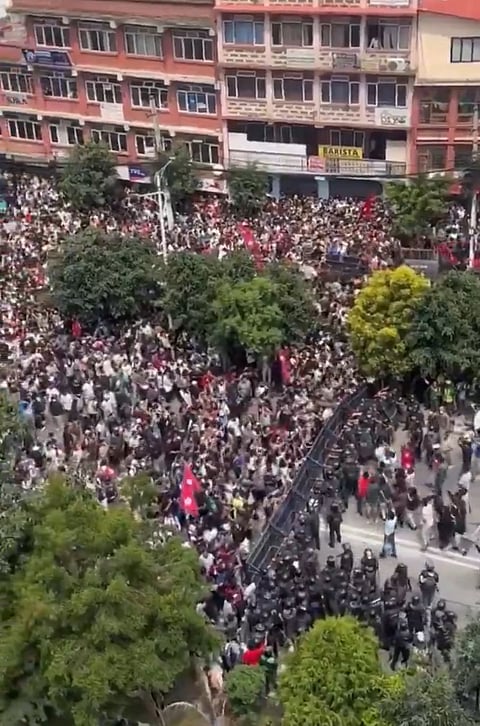

Nepal's President Ramchandra Paudel dissolved the 275-seat parliament late on Friday, paving the way for elections on March 5.
This move came hours after the appointment of former Chief Justice Sushila Karki as interim prime minister, marking the Himalayan nation's first female leader in that role.
The decision follows a week of intense unrest triggered by a government ban on social media, which has since been lifted.
The protests, largely driven by Gen Z youth, escalated into widespread demonstrations against corruption and nepotism in the political elite.
Demonstrators targeted symbols of power, including the parliament building and residences of top officials, ultimately forcing Prime Minister KP Sharma Oli to resign on Tuesday.
The violence claimed at least 51 lives, including 21 protesters, nine prisoners, three police officers, and 18 others, with more than 1,300 injured.
Police reported that about 1,000 escaped prisoners from multiple jails nationwide have been recaptured, though over 12,500 remain at large.
In Kathmandu, relatives of the deceased gathered outside the Prime Minister's official residence, pressing for martyr status and compensation for those killed.
"My brother should be declared a martyr as he died for the country, and the government should give compensation to my parents," said Sumitra Mahat, sister of 21-year-old Umesh Mahat, who was killed during the protest.
Many families withheld bodies from morgues until demands were addressed, highlighting the deep grievances fueling the upheaval.
As order begins to return in the nation of 30 million nestled between India and China, authorities eased restrictions on Saturday.
Curfews and prohibitory orders were lifted in the capital, though sensitive zones stayed restricted, allowing shops to reopen and traffic to resume.
The protests stemmed from broader frustrations over economic hardship, including high youth unemployment that has pushed millions to seek jobs in the Middle East, South Korea, and Malaysia.
Karki's appointment resulted from two days of negotiations involving President Paudel, army chief Ashok Raj Sigdel, and protest leaders.
Neighboring India expressed support, with Prime Minister Narendra Modi posting on X:
Heartfelt congratulations to the Honorable Sushila Karki Ji on assuming the office of Prime Minister of Nepal's interim government. India is fully committed to the peace, progress, and prosperity of Nepal’s brothers and sisters.
China, which urged calm during the unrest, has yet to comment on the new leadership.
This interim phase presents immediate challenges, including restoring stability and addressing the root causes of discontent amid Nepal's ongoing political turbulence since the 2008 abolition of its monarchy.